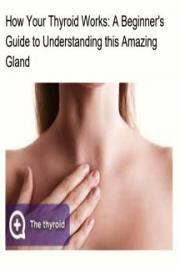Foreword
Dementia is expected to become the number one health concern this century. It is projected to affect 115 million people worldwide by 2050. Families, friends and car- ers are overwhelmed by the affect of dementia on their loved ones. So it is ex- tremely important to provide treatments that can prevent , stall or even reverse the disease. In addition to that it is also very costly to administer care to the patients.
In 2010 the estimated cost in United States Dollars was $604 Billion, and that is expected to increase dramatically by 2050. “Reversing Alzheimer’s” was priced at $19-95 and was on Apple’s iTunes Store for $9-99 but in order to reach as many people as possible I have decided to make it available FREE of charge. Please share it with anyone affected by Alzheimer’s. You may copy it, print it, email it, share it, like it and forward it to anyone as long as it is complete. It may not however, be sold in any format.
To your good health and your loved ones,
kind regards
Dr. Gerald Veurink.
http://www.naturels.com.au/reversing-alzheimers.html
CHAPTER 1
Need For Innovative Thinking
Innovation is needed to develop combinations of medicines that address all the factors involved in the disease process, and so providing a cure rather than symptomatic relief using a single ingredient medicine. For example combinations that alkalize, provide antioxidants, improve oxidation reduction potential, increase neurotransmitters, decreasing insulin resistance, provide nutrients for increased growth of new neurons (brain nerve cells) and removing plaques. Research has shown that there are many natural ingredients which provide these actions (Refer to Pubmed for example and see below).
Combined Antioxidants Therapy for Alzheimer's Disease
A large number of research articles have demonstrated that antioxidants are helpful for Alzheimer's Disease. Antioxidants are substances which prevent oxidation such as vitamin C and vitamin E which remove or mop-up potentially damaging oxidising agents (free radicals or reactive oxygen species) in living organisms.
Different antioxidants have different mechanisms of action, and are effective against different free radicals. For example, vitamin C is effective for protecting cellular components in an aqueous environment, whilst vitamin E and carotenoids protect cellular components in lipid environments.
Since both lipophilic (fat soluble) and hydrophilic (water soluble) phases occur in biological systems, it is wise to use antioxidants which are effective in each phase or in combinations which can act synergistically. No single antioxidant is likely to be capable of scavenging the variety of free radicals formed in Alzheimer's disease, therefore, the utilisation of multiple antioxidants as a preventative measure or as a treatment for neurodegenerative disease has been postulated to be more beneficial than the use of single antioxidants.
A combination of antioxidants is likely to have a synergistic effect, as well as regenerate other antioxidants. For example, various studies have shown that ascorbic acid (Vitamin C) recycles alpha-tocopherol (Vitamin E). It has also been shown that consumption of whole fruits and vegetables or their juices is superior to an ascorbic acid supplement for antioxidant effectiveness.
It is likely that the combination of antioxidant ingredients in fruits and vegetables also have a synergistic effect.
The fact that various antioxidants protect neurons in vitro and in vivo from beta amyloid-induced oxidative stress lends further support for the use of a combination of antioxidants as an adjunct to other therapies in the treatment of Alzheimer's disease.
Clinical studies have already found that vitamin E taken at 1000 IU twice daily delays the advent of death, institutionalization or significant functional decline in patients with moderate Alzheimer's disease.
However, vitamin E in combination with vitamin C may prove to be even more beneficial to Alzheimer's disease patients as vitamin C recycles vitamin E as mentioned, to its active form and, more recently, a study of vitamin intake has in fact found a reduced incidence of Alzheimer's disease following the combined intake of vitamins C and E, but not vitamin C or E alone.
Recent reviews of such clinical studies of vitamin C and E intake in elderly patients have also concluded that it is likely that the combined intake of these vitamins may reduce the risk of Alzheimer's disease.
Not all studies agree, however; for example, one study of the intake of carotenes (vitamin A) and vitamins C and E from both dietary and supplemental sources did not find a reduced incidence of Alzheimer's disease in a 4 year follow-up of the elderly patients in the study. Nevertheless, this study may have had problems estimating dietary intake of vitamins as these were only calculated from food frequency questionnaires and the vitamin content of the foods would have been rough estimates only.
Since epidemiological studies have revealed a variety of dietary interventions which may slow down or prevent the onset of Alzheimer's disease, more fresh fruit and vegetables in a calorie- restricted healthy diet low in trans-fats and carbohydrates (sugars), possibly supplemented with a combination of antioxidants, may prove to be a beneficial preventative measure.
Other Aspects of Nutrition and Alzheimer's Disease
Researchers have found that African-Americans and Japanese living in the United States have a much higher incidence of Alzheimer's disease (6.24% and 4.1% respectively) than their counterparts (<2%) living in their homelands. This suggests that environmental factors are also important players that interact with genetic susceptibility factors, or may play independent roles in the pathogenesis of Alzheimer's disease.
This study also found that levels of fat intake had the highest correlation with both Alzheimer's disease and the prevalence of senile dementia, and that a high correlation existed between total caloric supply and the prevalence of Alzheimer's disease.
Similar findings on the deleterious effect of high saturated fat and trans-fat consumption on cognitive function in aged men have been independently reported.
Cancer, coronary heart disease and Alzheimer's disease become increasingly prevalent with age. Decreased fat intake has been linked to a reduced risk of coronary heart disease. Furthermore, individuals with coronary heart disease also have an increased density of senile plaques in their brains.
Many studies have found a large overlap in risk factors for these two diseases. Such studies also give credence to the notion that environmental factors are important agents in Alzheimer's disease.
These studies also provide strong evidence that inappropriate diets may contribute to the pathogenesis of Alzheimer's disease as well as heart disease via an increased occurrence of oxidative stress or impaired cholesterol metabolism.
The concept that diet can affect mental ability and susceptibility to neurological disorders is not new. Several thousand soldiers held as prisoners of war in Japanese camps were made prematurely senile by almost four years of malnutrition. Supplementation with megadoses of nicotinic acid (Vitamin B3 at 3 grams per day) restored mental capacity. This led to the conclusion that “senility is due to chronic malnutrition and that it is a vitamin-dependent condition which comes from many years of mild or moderate chronic vitamin deficiencies”.
A variety of other nutritional factors have also been integrally linked with Alzheimer's disease. For example, it has been shown that dis- regulation of energy balance, vitamin B12, folate and homocysteine levels play a role in the pathogenesis of Alzheimer's disease.
It has therefore been suggested that an integrated medicine approach combining evidence-based treatments from the literature on dietary intervention, a reduction in stress, an increase in exercise, and dietary supplementation with pharmaceuticals and/or vitamins and antioxidants into an all-embracing complementary treatment strategy would benefit the elderly in many health aspects, and possibly reduce the risk of age-related conditions including Alzheimer's disease.







